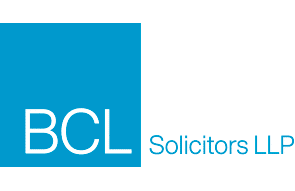Originally published on the Mondaq Platform
The boundaries of justiciability
Bishop Climate Wiseman of Kingdom Church recently appeared at Inner London Crown Court on fraud charges following a Trading Standards investigation by Southwark Council. It was reported that he was selling a “plague protection kit”, making untrue and misleading claims related to the efficacy of the kits to “treat, prevent, protect against or cure” COVID-19. Should the matter go to trial, it will raise questions for the Court on the thresholds to be met for fraud and other offences, where religious beliefs are implicated.
English courts have historically been wary of deciding cases that rest on contested assertions about the practices and doctrines of religions. There is a long-held principle that religions should be free from interference by the state in certain matters. Most of the higher court authorities addressing these matters are public law and commercial law cases. In 2014, the Supreme Court provided guidance on when it would be appropriate for a court to adjudicate in a case involving a Sikh sect that was appealed from the Court of Appeal, Civil Division. Could fraud prosecutions involving faith and religious leaders in the context of the COVID-19 pandemic provide for criminal case law precedent?
True or false prophet?
Southwark Council brought charges against Bishop Wiseman under the Fraud Act 2006 and the Consumer Protection from Unfair Trading Regulations 2008 (CPUTRs). Court reports indicate that he will contest the prosecution. In a blogpost alleged to be written and posted by the defendant, he claims the remedy was based on a passage from chapter 14 of the Old Testament Book of Leviticus. The Bishop is quoted as saying “This is based on the Bible – I’m a Christian, and there is a way that the Bible says to protect us from plagues.” He pleaded not-guilty, denying any dishonesty and asserting his freedom to practise his religion.
Dishonesty and diligence
Depending on the particular facts of any case, selling a COVID-19 ‘cure’ could be considered fraud by false representation (Section 2, Fraud Act 2006), an unfair commercial practice (contrary to the CPUTRs), and/or a breach of the Human Medicines Regulations 2012 (HMRs). Under the Fraud Act, the defendant must have intended either to make a gain, cause a loss or expose somebody else to the risk of a loss. Furthermore, the Defendant must have been dishonest. When dishonesty is in question, it is determined by the objective standards of ordinary decent people.
Offences under the CPUTRs and HMRs are generally easier to prove. The former is committed if the seller breaches the requirements of ‘professional diligence’ (either recklessly, or without due regard for such standards), or in a number of specific cases, which include ‘falsely claiming that a product is able to cure illnesses’. Offences under the HMRs are committed (with limited exceptions) where the product has not been licensed.
Legal doctrine
The English criminal courts have seen an attempted prosecution for fraud involving statements of religious beliefs. In March 2014, Thomas Phillips brought a private prosecution against Thomas Monson, the President of the Church of Jesus Christ of Latter-Day Saints (based in Salt Lake City, USA). Mr Phillips alleged that Mr Monson had committed an offence when asking Church members to make financial contributions (‘tithing’) based on theological doctrines that were, he alleged, untrue or misleading.
The Summons singled out the assertion that the Book of Mormon was “translated from ancient gold plates by Joseph Smith [and] is the most correct book on earth” as an untrue or misleading claim. It was argued that a fraud case could be brought as the doctrines in question were statements, the truth of which, it was argued, could be determined by the court.
Following a hearing at Westminster Magistrates Court, Chief Magistrate DJ Riddle directed that the summons be withdrawn, concluding that the complaint of dishonest doctrinal claims was too tenuous a basis on which to found a fraud prosecution. In his published remarks, he stated that issues of the truth or falsity of religious doctrine were non-justiciable.
A higher authority
Mere months later (in June 2014), the Supreme Court handed down what is now the seminal authority on the justiciability of religious matters in Khaira v Shergill. The key question for determination in that case was whether the Ninth Claimant was the “Third Holy Saint” and therefore in the designated line of spiritual succession. If he was so, that would entitle him to exercise a power conferred by the trust deeds of two religious charities. He could remove the appellants as trustees and to replace them with his fellow claimants.
The appellants contended that the contested claim to be the successor unavoidably turned on matters of religious faith and doctrine. A secular court simply could not adjudicate in the circumstances. The Court of Appeal, Civil Division, had struck out the dispute on that basis.
The Supreme Court reversed that decision, pointing out that, where private rights are involved, such as property rights or contractual claims, the courts cannot avoid deciding upon doctrinal issues if it is necessary to determine the civil claim. Theology can be a legitimate matter of discussion, provided that what the court is deciding is not a question of theology but is an issue of individual rights and interests. The court could consider religious issues, where there were civil law consequences.
Universal freedoms
Freedom of religion and expression are protected by Articles 9 and 10 of the European Convention on Human Rights. These are both qualified rights, measures can be taken to limit both these freedoms when “prescribed by law and….necessary in a democratic society”. The prevention of crime and the protection of health are legitimate reasons for restricting these freedoms.
The relevance of religious belief to the offences under the Fraud Act is complicated. Under the Fraud Act, if a defendant honestly believes, on religious grounds, that a cure is effective (even if it is not), then this may mean he is not dishonest – a vital ingredient of the offence.
Objective standards?
What may prove challenging is the test for dishonesty as it was reconsidered in Ivey v Genting Casinos Ltd, a 2017 Supreme Court case. When determining whether the religious belief was dishonest, the court will firstly account for the actual state of the individual’s knowledge or belief. Secondly, the court will determine whether his conduct was honest or dishonest by the objective standards of ordinary decent people.
We know how widely circulated claims about methods of preventing and curing COVID-19 infection were at the height of the pandemic. What will be interesting to observe is whether defendants in COVID-19 fraud cases will be permitted to introduce evidence of the reasonableness of these beliefs, or the extent to which they were widely held, particularly in a religious context. Even under the CUPTRs, where dishonesty is not needed, there may be disputes over the Bishop’s state of mind, as well as whether the claims were true or false.
A need for answers
The law is clear on the justiciability of religious beliefs in civil law disputes. The courts have jurisdiction to determine the ownership and control of property held on trust for religious purposes. It is less clear where the law stands in a criminal context. What is the relevance of the doctrine of non-justiciability of religious beliefs when the defendant’s beliefs are said to be the basis for the fraud? If there is dishonesty, and the objective test is met, are the beliefs then to be subject to judicial determination?
The decisions of magistrates’ courts are never binding, but the published remarks of Chief Magistrate DJ Riddle in Philips v Monson may hold some weight for those seeking guidance. But the law has moved on since then, with confident and clear guidance from the Supreme Court in Khaira v Shergill, and in Ivey v Genting. Authority from the Court of Appeal Criminal Division or the Supreme Court, addressing these points on the justiciability of religious beliefs in a fraud or other economic crime context would be helpful to practitioners. The COVID-19 pandemic may provide the perfect antidote to this uncertainty.
This article was published by Open Access Government on 21/10/21.
The content of this article is intended to provide a general guide to the subject matter. Specialist advice should be sought about your specific circumstances.





